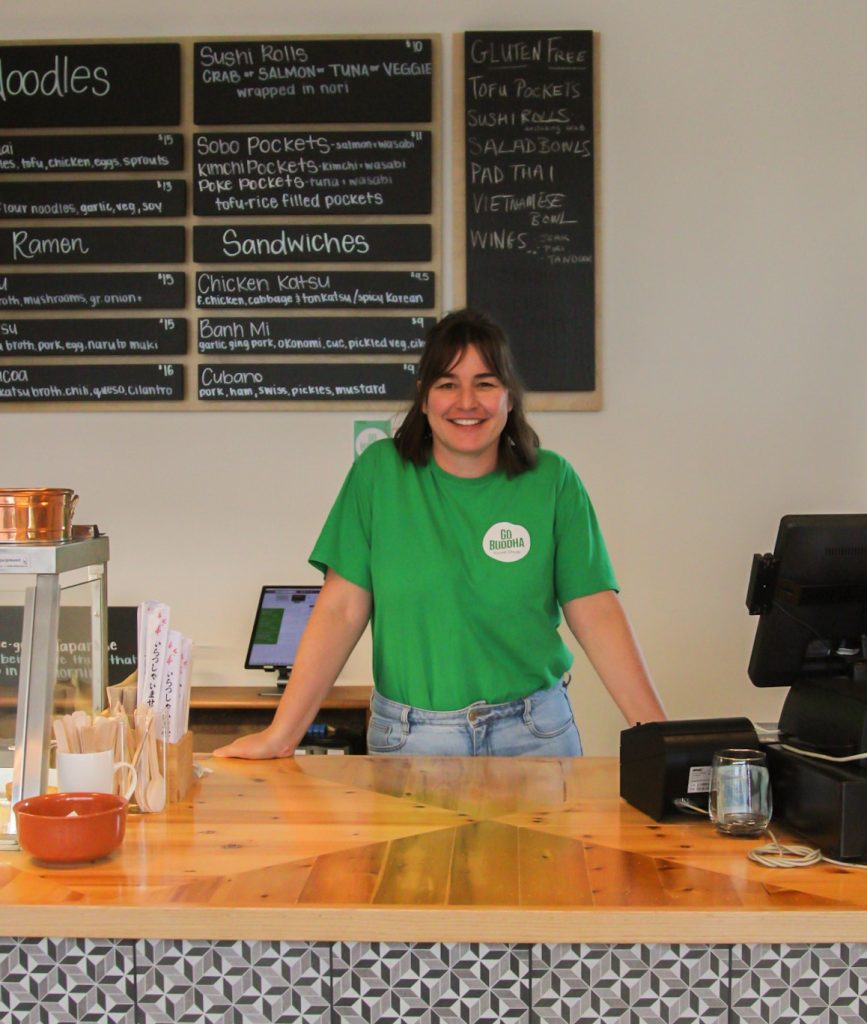
Port Colborne’s Go Buddha finds a new way to tell its story
Storytelling was always going to play a role in Kyla Pennie and Kevin Echlin’s Go Buddha, a global grab-and-go pantry and take-out counter in Port Colborne.
The menu for the couple’s first restaurant The Smokin’ Buddha – opened in 2007– was inspired by their time teaching English and travelling South East Asia in the late 90s and the foods they missed when they returned home. The dishes on the menu read like passport stamps for their travels. However, when they opened Go Buddha in early 2023, it was clear they were going to have to find a new way to tell stories.
“When we moved here, the only international food at that time would've been Italian and Chinese,” says Pennie. As Port Colborne has become more diverse, new restaurants have opened offering authentic cuisine like Thai, Jamaican, and Indian food. “So we're just sort of finding our spot with other players now in the market.”
Pennie has always envisioned their restaurant as a way to introduce people to more cuisines and cultures from around the world while at the same time respecting the space for newcomers to bring their own cuisines to Port Colborne. Go Buddha builds on that concept. “It’s sort of like a gateway to global food,” says Pennie. It has hard-to-find international groceries like high-quality curry paste or lime leaves and grab-and-go street food staples like curry dishes, sushi, cubanos and ramen.
But it’s also competing for attention. To be one of the few international spots in the area isn’t enough anymore, they needed to invest in digital marketing.
They got an opportunity to experiment in the digital presence realm when they connected with Digital Main Street, a program combining grants and one-to-one support from the Province of Ontario alongside partners to help main street businesses strengthen their online capabilities and plan for the digital future. Pennie saw the $2,500 Digital Transformation Grant and training videos as an opportunity to invest in the brand’s story.
Pennie says the grant helped Go Buddha invest in some high-quality imagery and social media marketing. But, for her, the standout was the training videos.
“One thing that I remember the most from that specific training was how to compete or how not to compete with big box,” says Pennie.
Her biggest learning was that it was the story behind the business that connects with customers – something big box stores and restaurants can’t compete with. “I think we've tried to do that in terms of telling the story of who we are, where we come from, and what we offer the community,” she says.
Through the videos, Pennie was able to gain a better understanding of what makes a particular social media post successful and how to use them to gather insight on customers and their preferences. She points to a post asking her social community to choose between a pot sticker of a Thai fish cake. “Even though there were like 10 people responding, they said things like ‘I would choose this’ or ‘that's so good’ or ‘I wish it was vegan’ – and I learned from that.”
Pennie says she’s happy with the direction they’re taking the business. It’s still an experiment but they’ve got the design elements in place. The next step will be to continue to build their social channels and their digital marketing to engage new customers and get them through the door.
She sees Digital Main Street as an important step on that adventure.
“Overall, (Digital Main Street) helps with that digital literacy by taking newbies and introducing them to that world,” she says.

To learn more about Go Buddha you can visit their website and social media. (Facebook, Instagram).
To learn more about Digital Main Street's programs and how we can help your business visit here.
Digital Main Street was created by the Toronto Association of Business Improvement Areas (TABIA) with direct support from the City of Toronto. DMS is also supported by a group of strategic business partners, including Google, Mastercard, Shopify, Meta, Intuit QuickBooks, Square, Lightspeed, Ebay and Canada Post.
Continued investment from the Province of Ontario, through the Ministry of Economic Development, Job Creation and Trade (MEDJCT) has allowed the ongoing expansion the Digital Main Street Platform in order to support more businesses going digital across Ontario.
